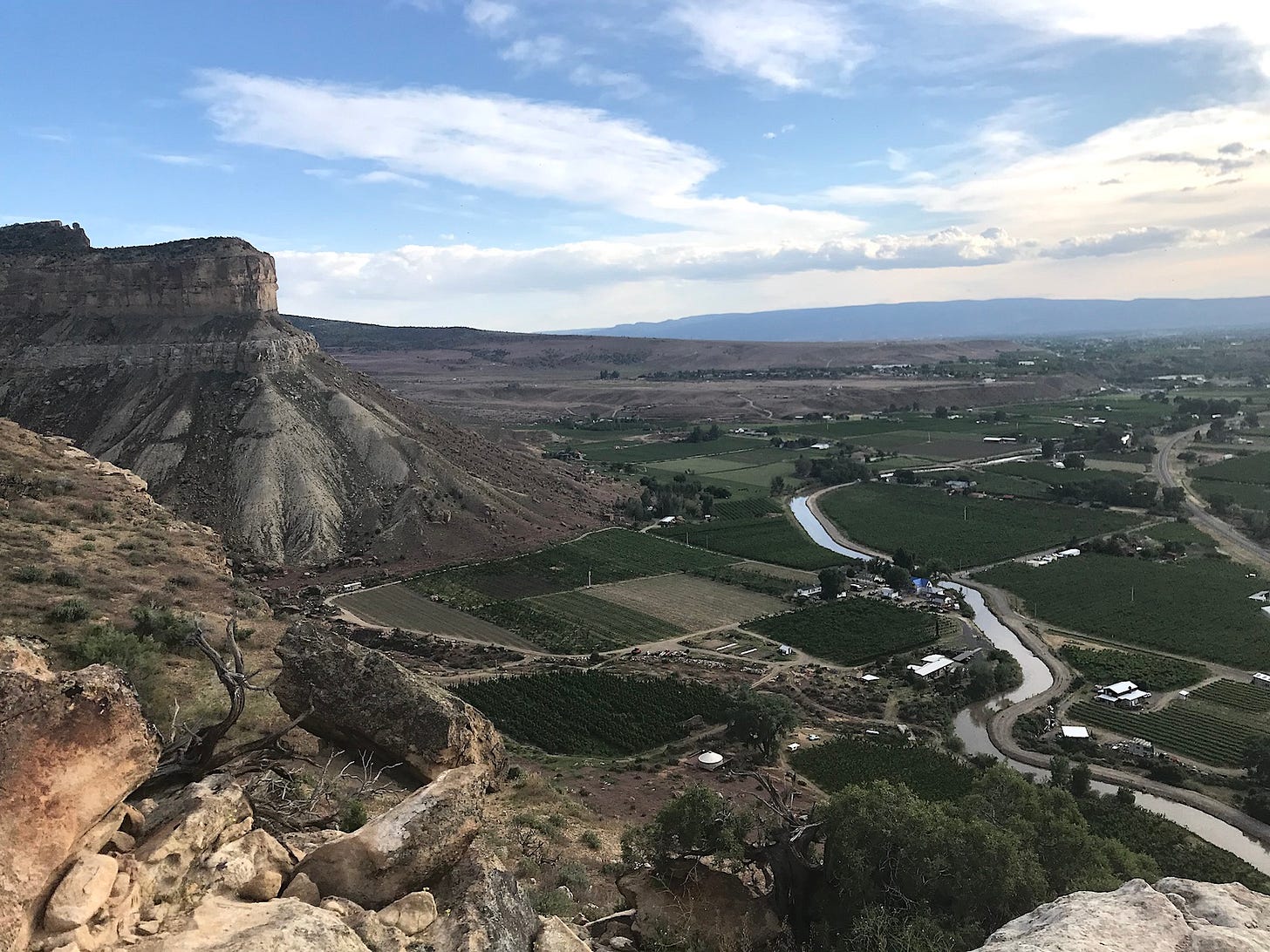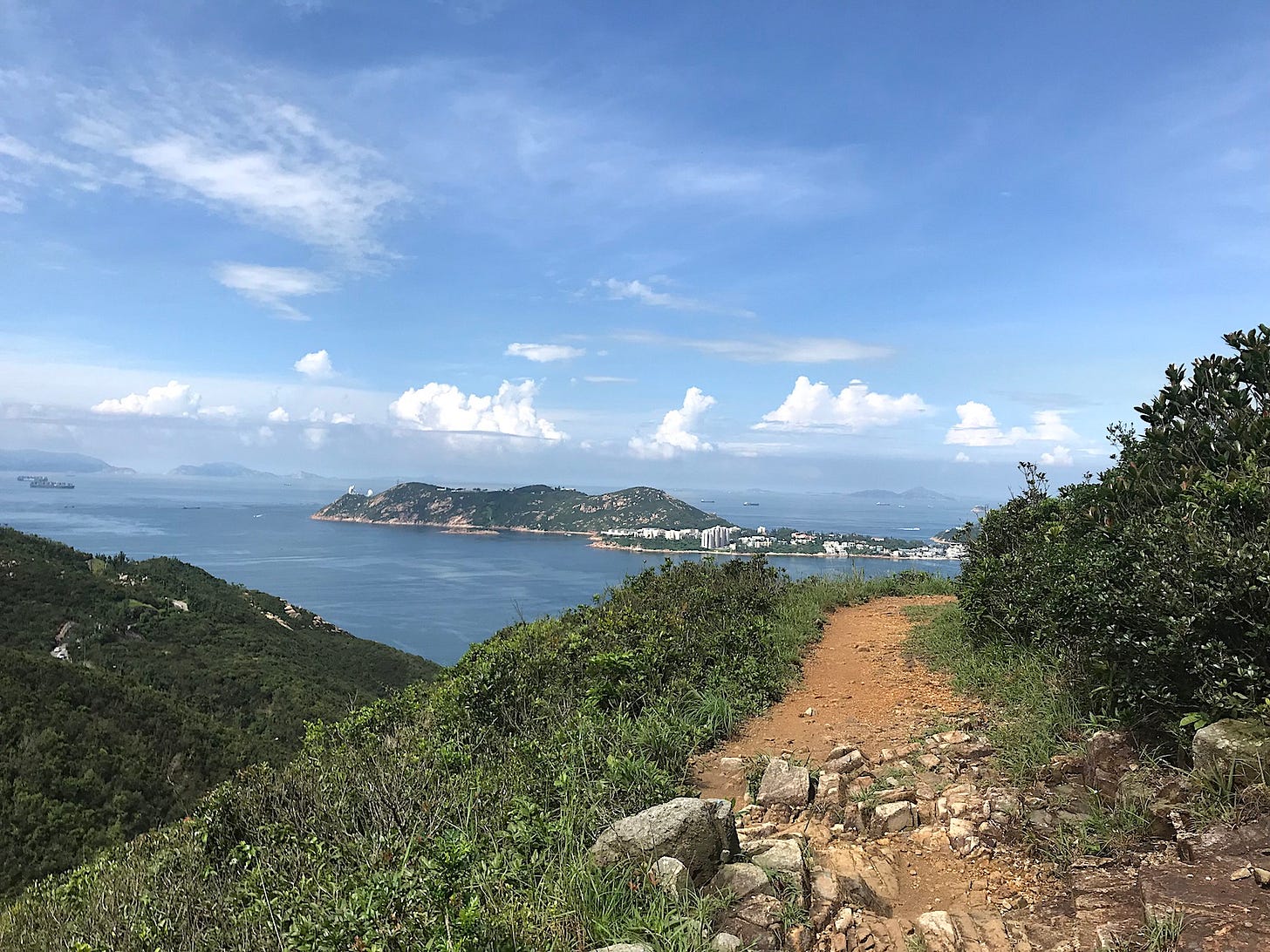Travel is an amazing way to open your mind and gain a better understanding of the world, and it is an important aspect of location independence. But building everything around travel prevents other aspects of your life from coming to fruition.
Hey reader,
The hype around the digital nomad lifestyle has grown exponentially since 2020. But underneath all of the staged beachside-with-a-laptop photos and “how to become a digital nomad” blogs and podcasts and coaches is one simple fact: very, very few live a lifestyle of full-time travel for more than a year or two.
This week’s essay looks at a better and more realistic approach to location independence — one that is built around lifestyle design. That means planning the life you want and bringing it to fruition, and while for most of us here in the Mountain Remote community that does mean a lot of travel, travel isn’t the only factor to consider.
I hope you enjoy this read and take something away from it.
Community shoutouts
Welcome to the 15 new subscribers since the last dispatch! First round’s on me if we ever find ourselves on the same front porch (it’ll make sense momentarily).
Several of you responded to the last dispatch about our responsibility as remote workers to help create people-first communities. I’m glad this one resonated — because few things will ensure a better future for humanity and all species on the planet.
Now, let’s design some perfection.
Is this digital nomad life sustainable for the long-term?
Last night I visited a friend’s house for happy hour on his porch. This friend, we’ll call him John, has worked for one of Colorado’s biggest ski resort operators for many, many years — long enough that he’s become a “big wig.”
Thing is, John (like me) lives in Palisade, which is a good hour and 45 minutes from Aspen, where his office is located. He is among the class of professionals who negotiated a remote work agreement during the pandemic and used that newfound location independence to move somewhere with a lower cost of living without sacrificing his income (pretty much anywhere has a lower cost of living than Aspen).
John visits the office when necessary but spends much of his time working from home or traveling around.
Many studies have documented the boom in moving further away from work since the start of the pandemic. Some made the move permanently, others only for a while or only for part of the year.
But John’s story stands out to me as the most optimal situation for the gainfully employed. That’s because it takes advantage of the ability to live where you want and lower your cost of living through the form of location arbitrage offered by remote work.
And instead of going freelance or launching a business, as many including myself did to gain location independence, he continued his career in a manner more suitable to him and his family — in other words, he utilized lifestyle design.
For all the hype around the digital nomad scene and all the benefits of remote work, lifestyle design is, in my opinion, the ultimate goal of it all. Travel, async work schedules, and other perks are secondary or tertiary.
I define lifestyle design as incorporating the important aspects of one’s life — such as work, family, hobbies or passions, and finances — and combining them in a manner that allows each to thrive, rather than prioritizing one to the detriment of one or more of the others.
The reason for this is that traveling full-time, forever, prevents a person from optimizing for everything else in their life. Travel is an amazing way to open your mind and gain a better understanding of the world, and it is an important aspect of location independence. But building everything around travel prevents other aspects of your life from coming to fruition. And that is why most location independent people — even digital nomads — eventually settle on one or more home bases where they want to spend most of their time.
For more on my own story of lifestyle design, see this post.
In Palisade, hikes and bike rides often end at an estate winery. Not too many places can say that.
The backstory to why I believe this
In September of 2015, I’d just left an editing gig at a failing music publication and was increasingly jaded with my other gigs, playing in a punk band and talent buying for a local rock club. I’d crashed head-on into the burnout wall and was searching (read: desperate) to find a new outlet to write for. Otherwise, I knew that booking gigs at rock clubs would become my full-time career, and after a decade in the razor-sharp blender that is the music industry — as a journalist, musician, and buyer — few careers sounded worse.
I logged onto Facebook one morning and saw that a childhood friend had shared an article from a travel site called Matador Network. I clicked it. That article, about traveling solo around the world, opened the door to everything I didn’t know I needed.
I’d been working mostly from home for five years at that point and was accustomed to staring at a laptop all day.
But I needed lifestyle design because I was burned out on what I’d been doing and was ready for a fresh start.
Yet I had no idea that an entire culture of laptop warriors just like me had blossomed — and that those people were posting up in places like Chiang Mai, Thailand; and Bali.
I’d done a bit of this myself. In 2013, I filed a couple of stories while backpacking across Europe and one time did layout work for the magazine to prep for the printing press in Colorado, while at a hostel in Costa Rica. The fact that thousands of others were doing this full-time, however, had completely escaped me.
“Digital nomads,” they called themselves.
I was awestruck, inspired, and as excited as when I attended my first punk show in the 8th grade.
Within a few weeks, I had my first byline in Matador. Six months later, my wife and I touched down in Thailand.
The perception
Over the ensuing years since 2015, I’ve worked remotely from many locales, including around the US, Europe, and Colombia, and have spent months abroad in Asia in 2016 and 2017, and again in Mexico in 2019.
Many who consider themselves digital nomads or long-term ex-pats are now close friends of mine. I’ve never quite fit the bill to a perfect “T” largely because I bought a condo in suburban Denver in 2014, and swapped that condo for our current house in Palisade in 2019. Thus, I have always had a home base — not a real digital nomad.
At least not in the truest sense of the term. But is a lifestyle of full-time travel sustainable for the long term? For years, or even decades? Certainly, there are many examples of people who have done it for 10 years or more.
That said, most people I’ve met through this lifestyle do one of a few things:
Travel full-time for a few years and then return home
Travel full-time for a few years and then settle on one or more places they want to be their home base(s)
Are like me and have a home base, but spend two or more months per year abroad and travel freely as they wish throughout the year
A study published by Project Untethered found that 34 percent of digital nomads plan to nomad for one year or less. And while that leaves 66 percent vagabonding for a year or more, a few things need to come into consideration.
Then again, hiking Hong Kong’s country parks is pretty epic, too.
Money isn’t priority number one, but it’s important nonetheless
The first is the fact that — despite what those blogs and coaches will tell you — most full-time traveling digital nomads don’t actually make much money, because they’ve optimized their life for travel but nothing else. According to Think Remote, 27 percent make $2,000 per month or less. Only 11 percent make $5,000 or more per month.
$2,000 per month and a lifestyle of travel might sound great when you’re in your early 20s (it certainly did to me, when hopping in the van and playing punk shows every night was my top priority), but add a decade onto that and it sounds nothing less than exasperating. That amount of money is plenty to get you started in Chiang Mai, but when everything in your life is built around travel and not advancing other parts of your situation, it’s tough to steadily grow that income.
This is part of the reason why most remote workers don’t travel all the time — with 73 percent only visiting a couple of countries each year.
Personal relationships are critical, no matter where you are
The next thing to consider is the strain that this causes on your relationships. I’ve found that travel makes me a better person and it has benefitted my relationships, including my marriage, in more ways than I can count.
I’ve also made many close friends in faraway places, and am able to relate to them in a completely different way from those back home. I readily admit that the more I travel, the tougher it is to relate to friends who don’t and therefore don’t have the same global perspective. As pro snowboarder Jeremy Jones told me during an interview in 2018, “It’s very tough to gain that perspective from your hometown, and we need that one-world perspective more than ever.”
But being gone all the time hinders the closeness I feel with family and friends.
Not to suggest that the balance I’ve found (noted above, the whole “two months abroad per year” thing) will work for everyone, but the key here is to actually find the balance that works for you and be disciplined enough to stick to it.
Thinking back to my friend’s lifestyle, the forethought brought into the decision to home base in Palisade is what lifestyle design is all about — having everything you need professionally at arm’s length, and mountain biking, skiing, hiking, wineries, breweries, and an airport right here, is Mountain Remote, defined.
That calls for another round on the porch.
Can you do me a favor? Forward this newsletter to one person who would enjoy it. That’s the best way to show support for Mountain Remote. Thanks!
Mountain Remote news and further reading
I reviewed my favorite tent for Matador Network, and it’s steeply discounted right now through the REI Labor Day Sale.
Skift reported on flexible living company Landing, which just closed a massive financing round aimed at bringing subscription-based housing (a la Outsite and Selina) to major US cities.
Why a recession will boost remote work rather than hurt it, from Yahoo!News.
Thanks for reading! See you next week.






